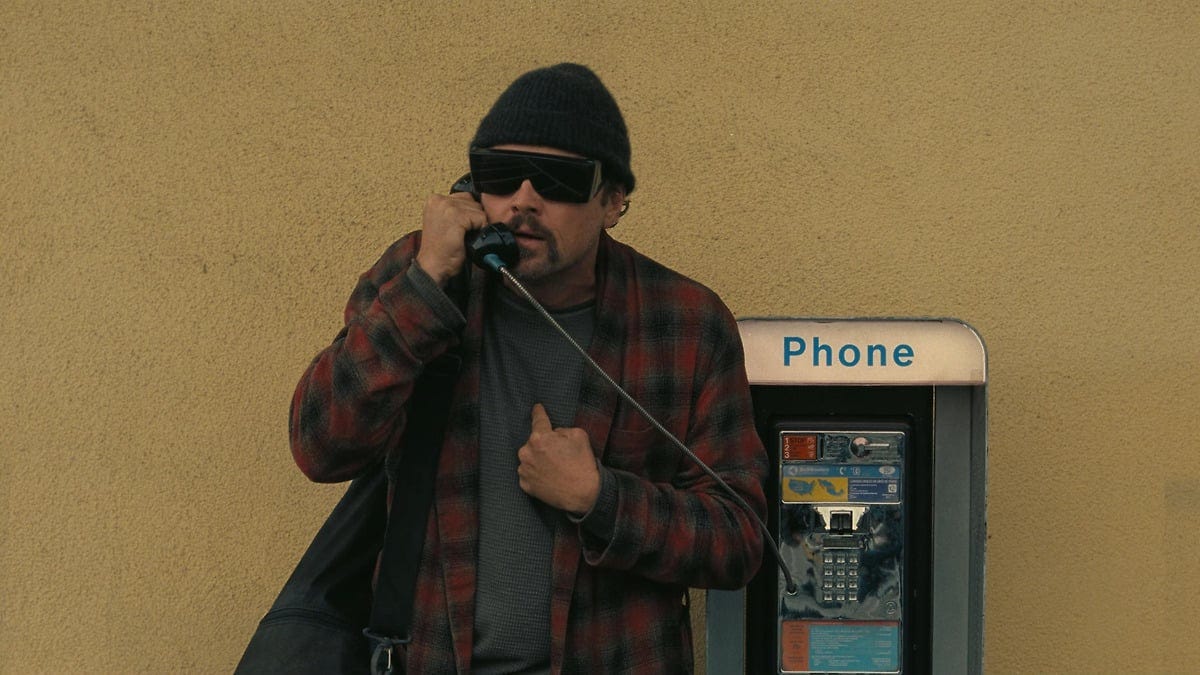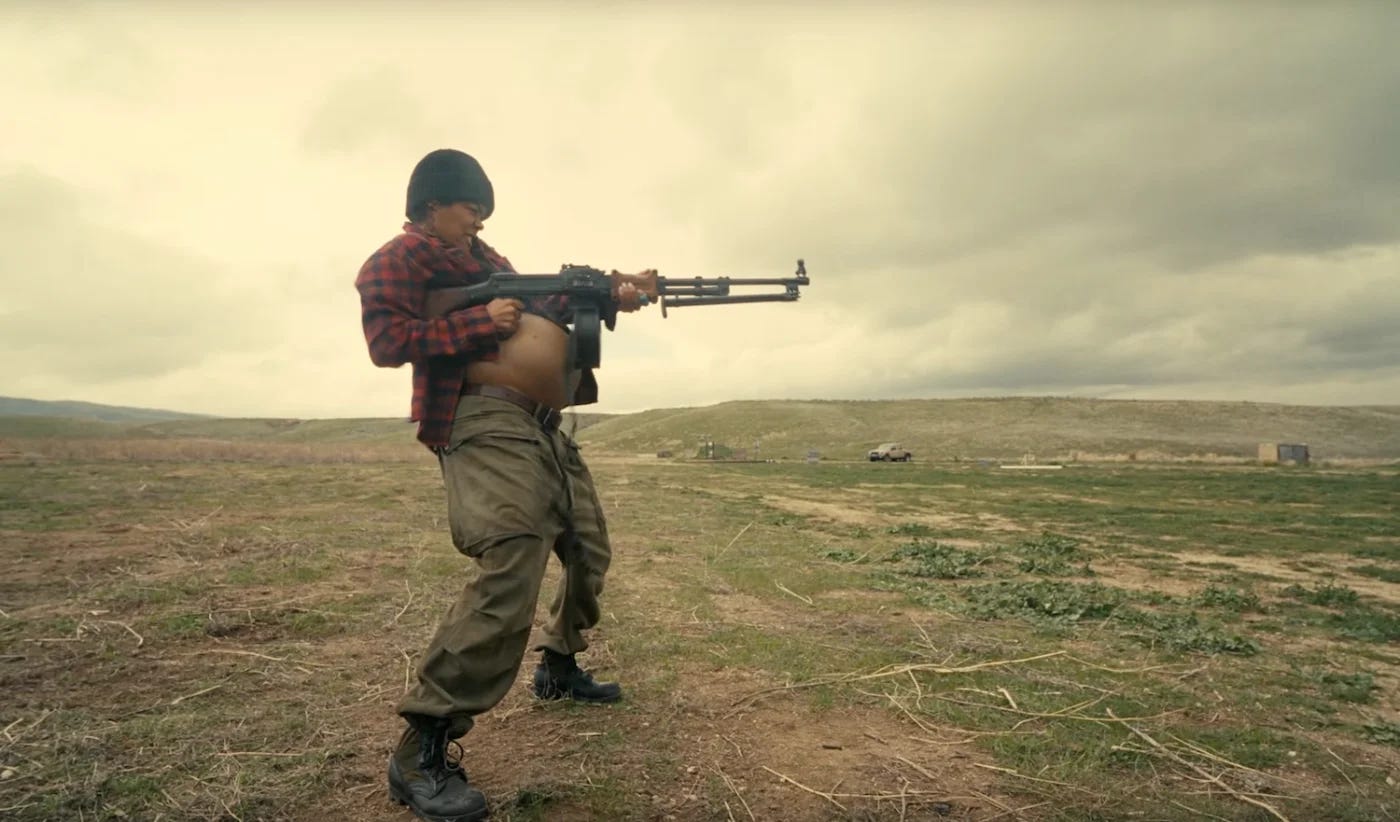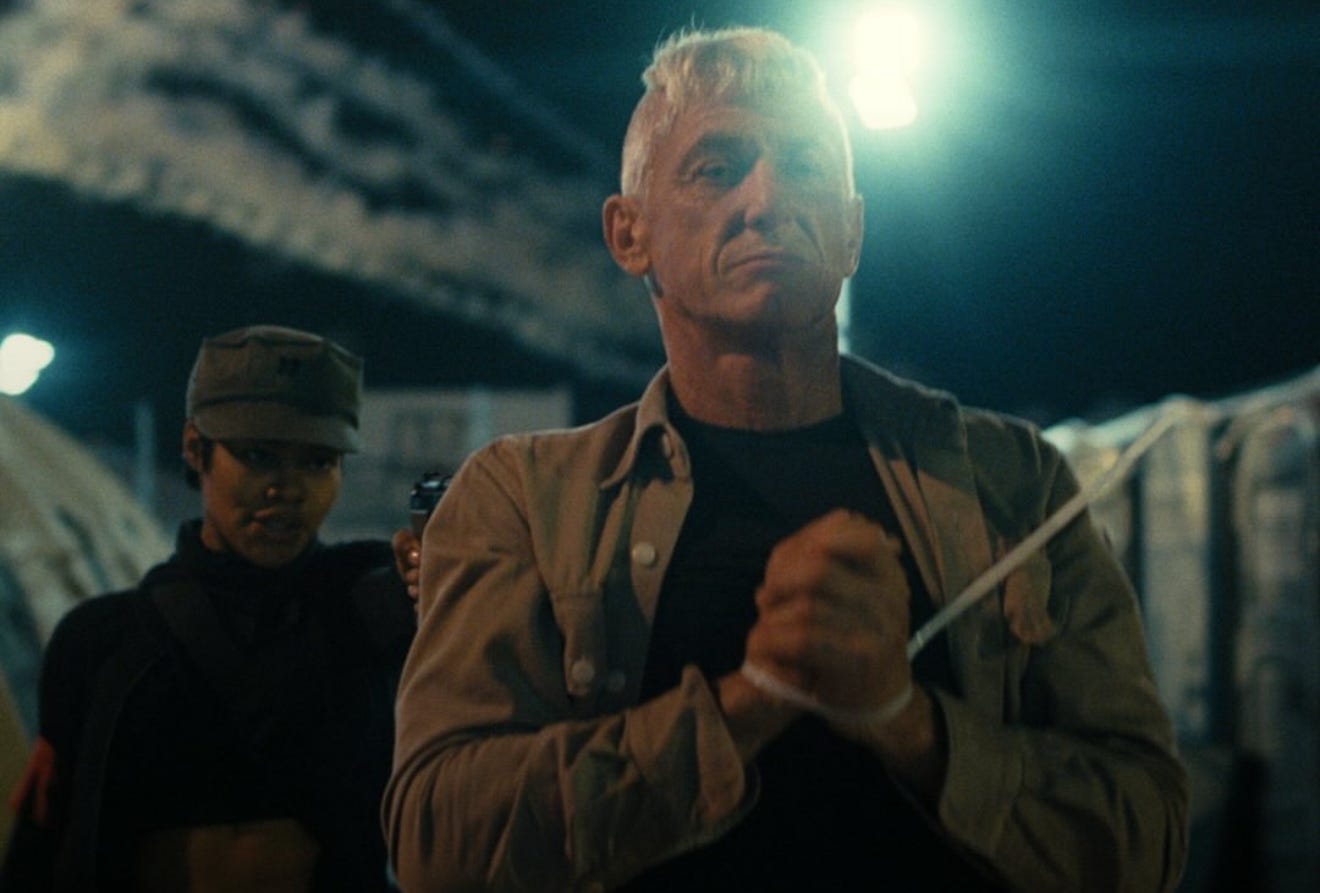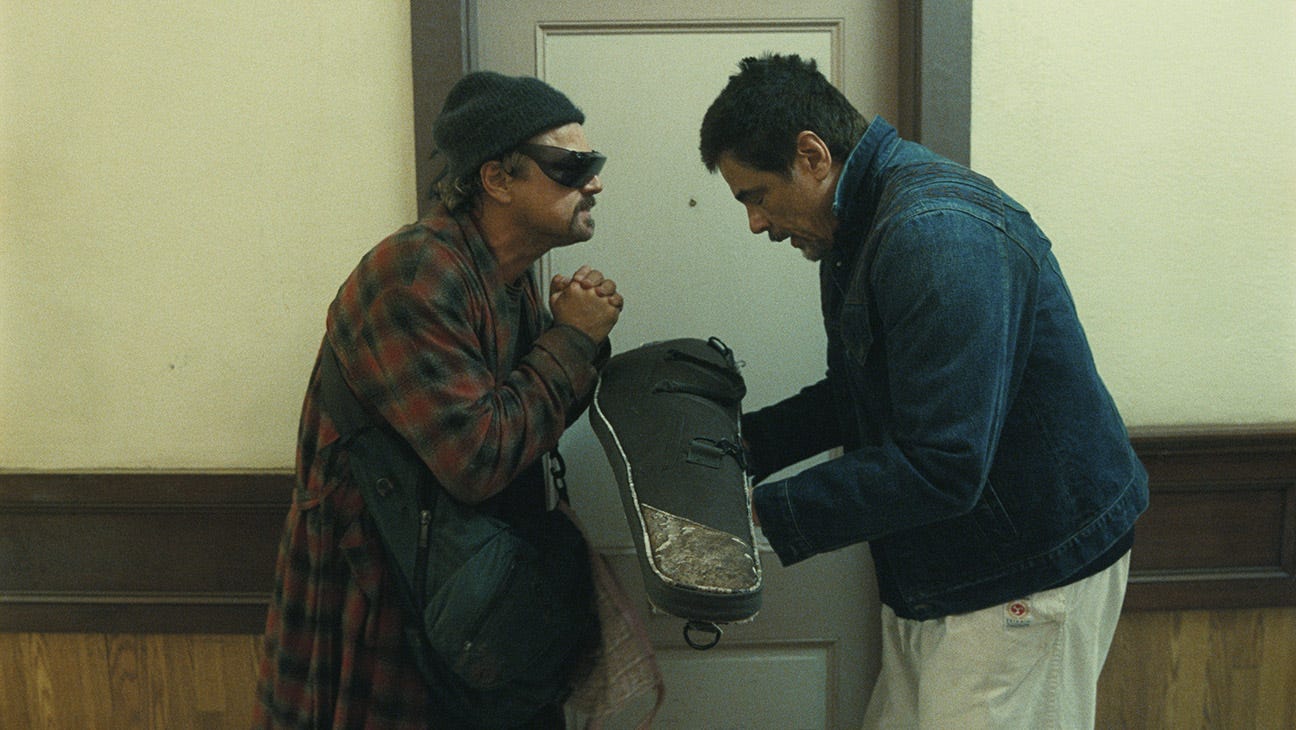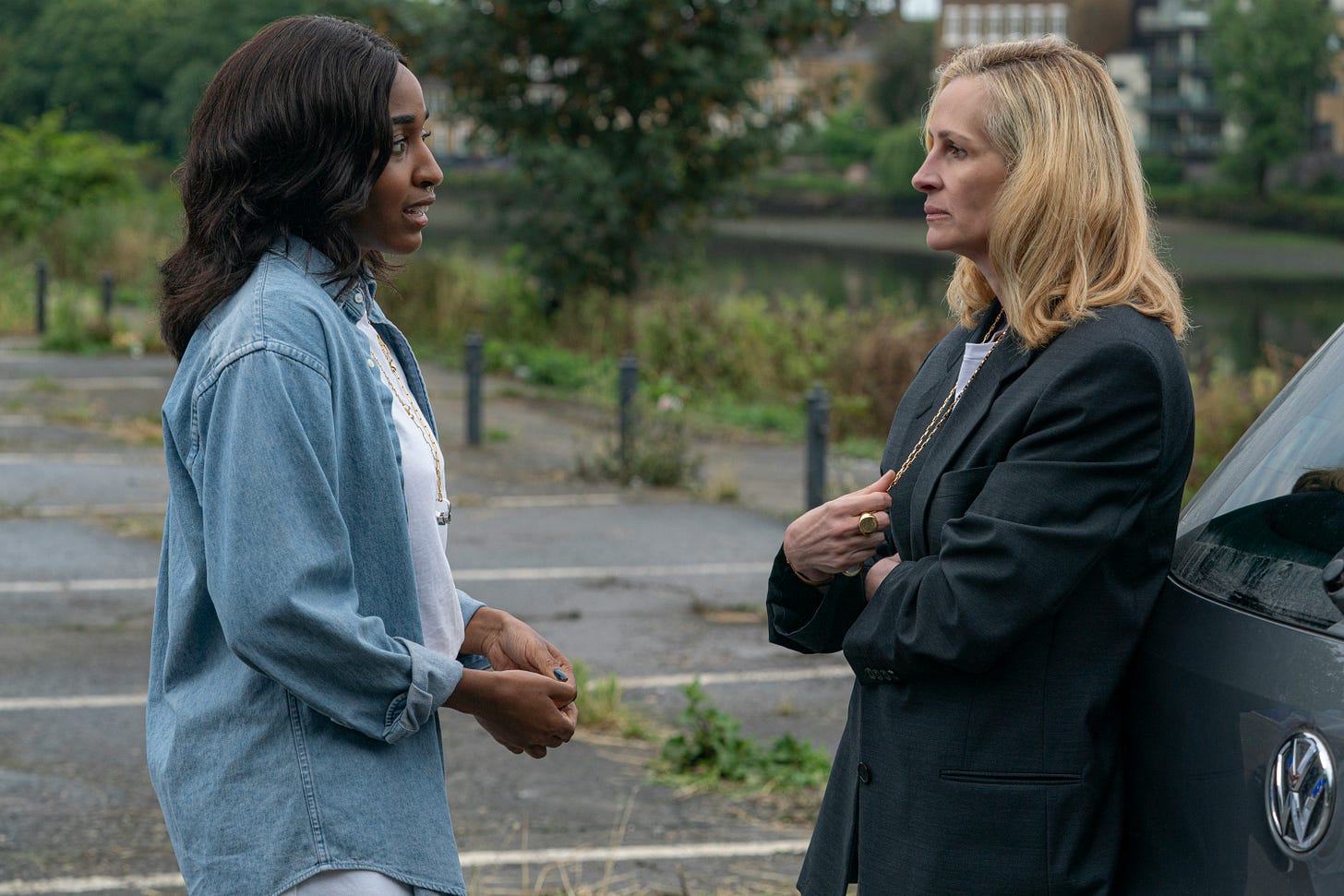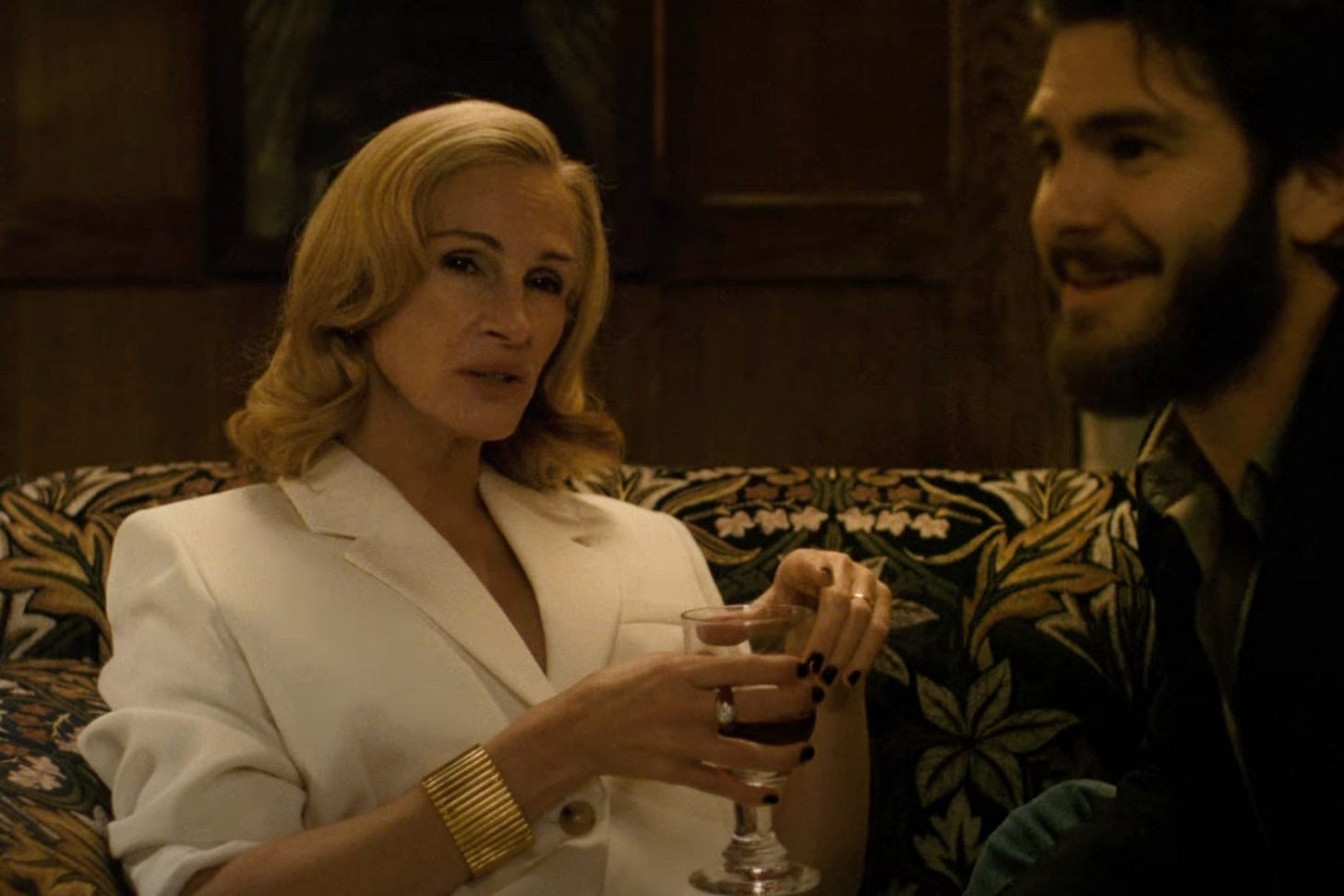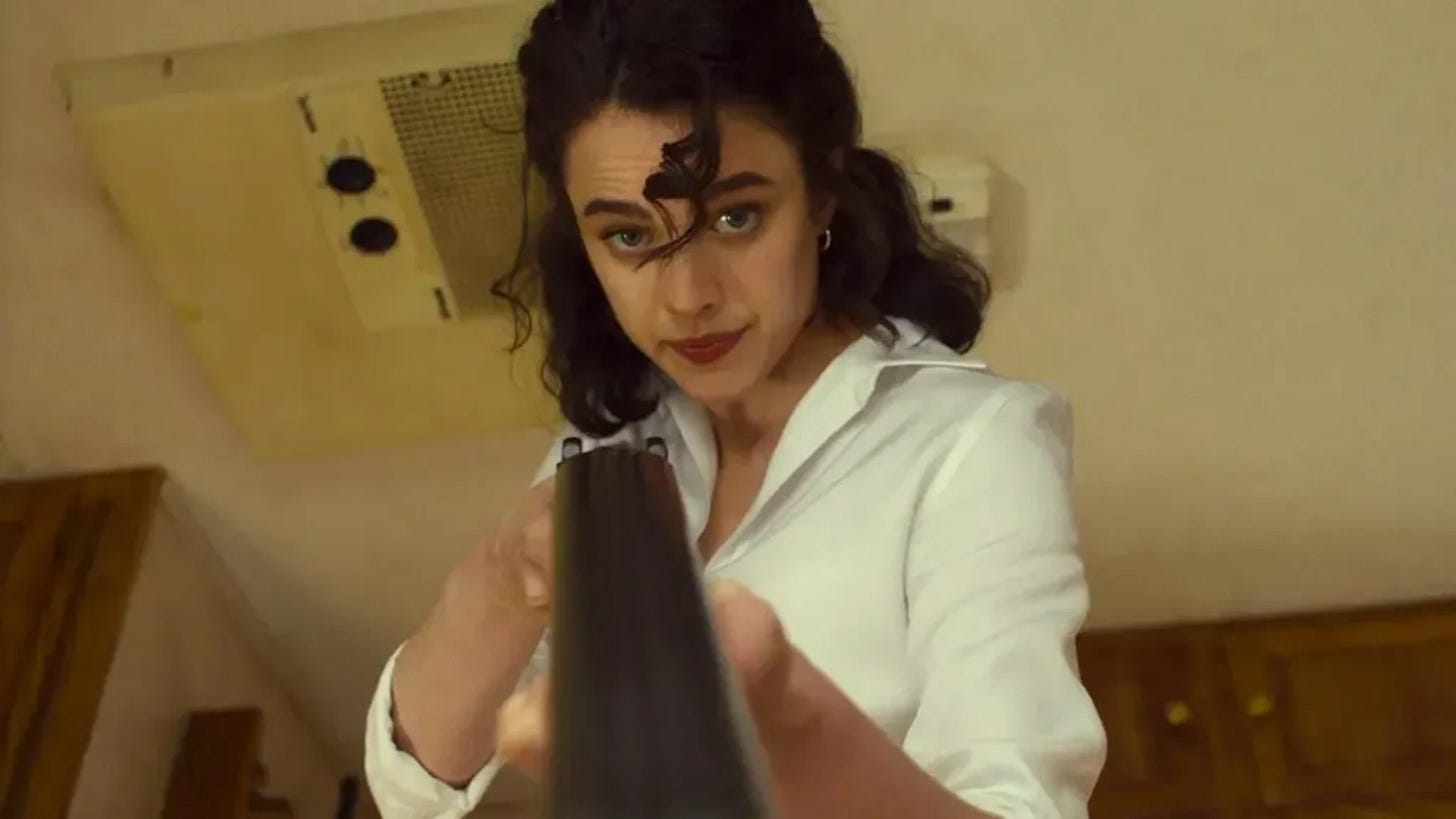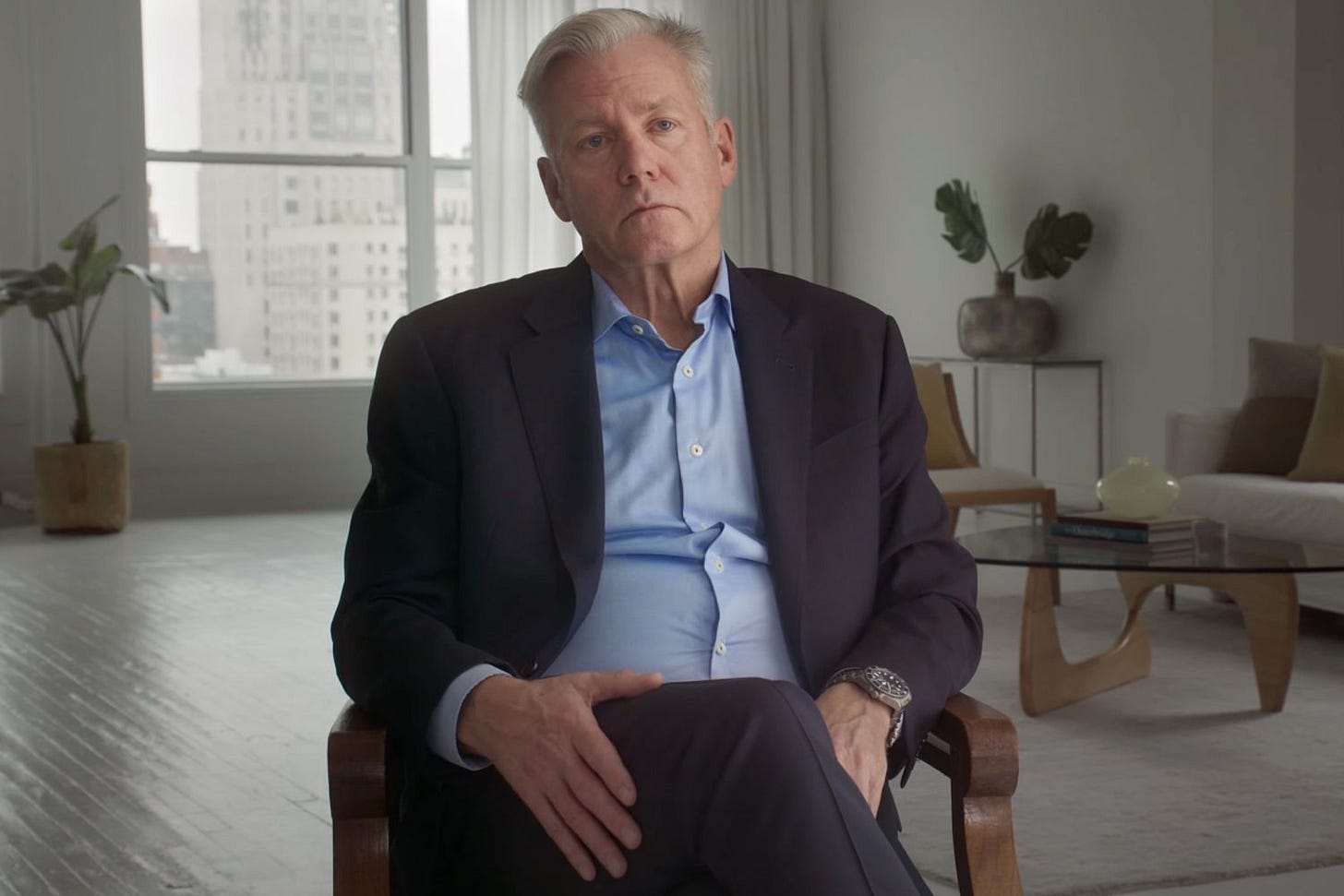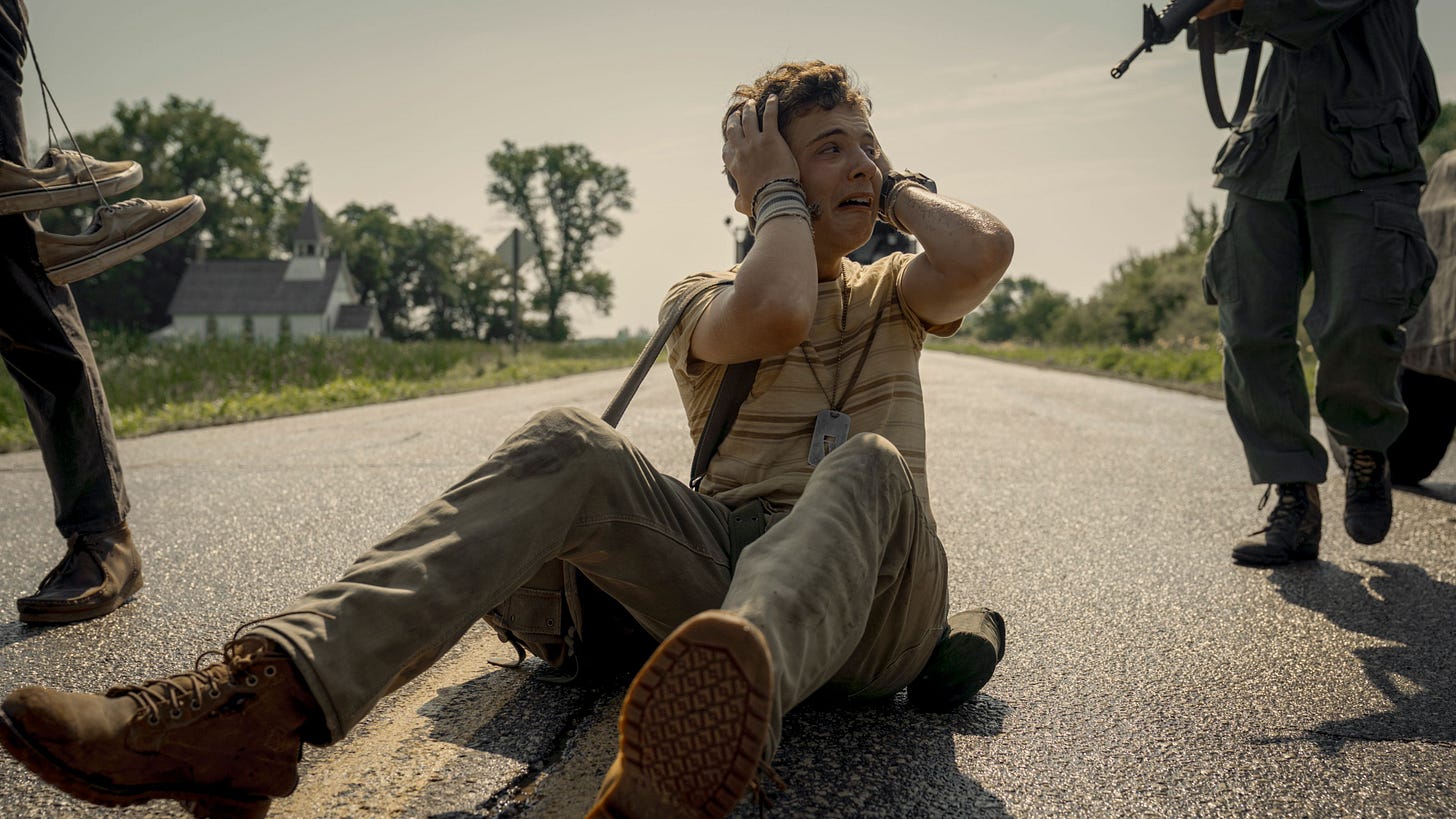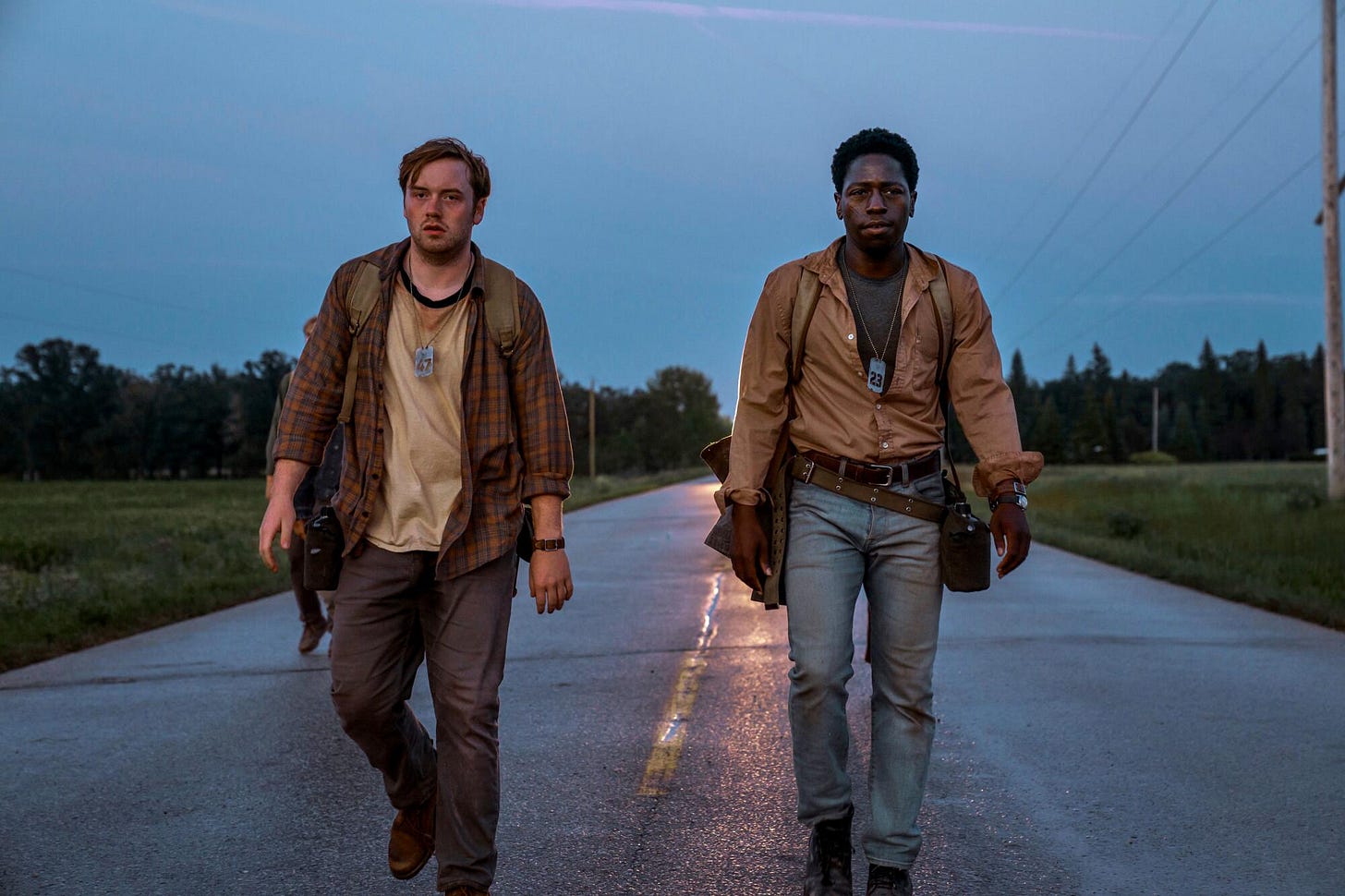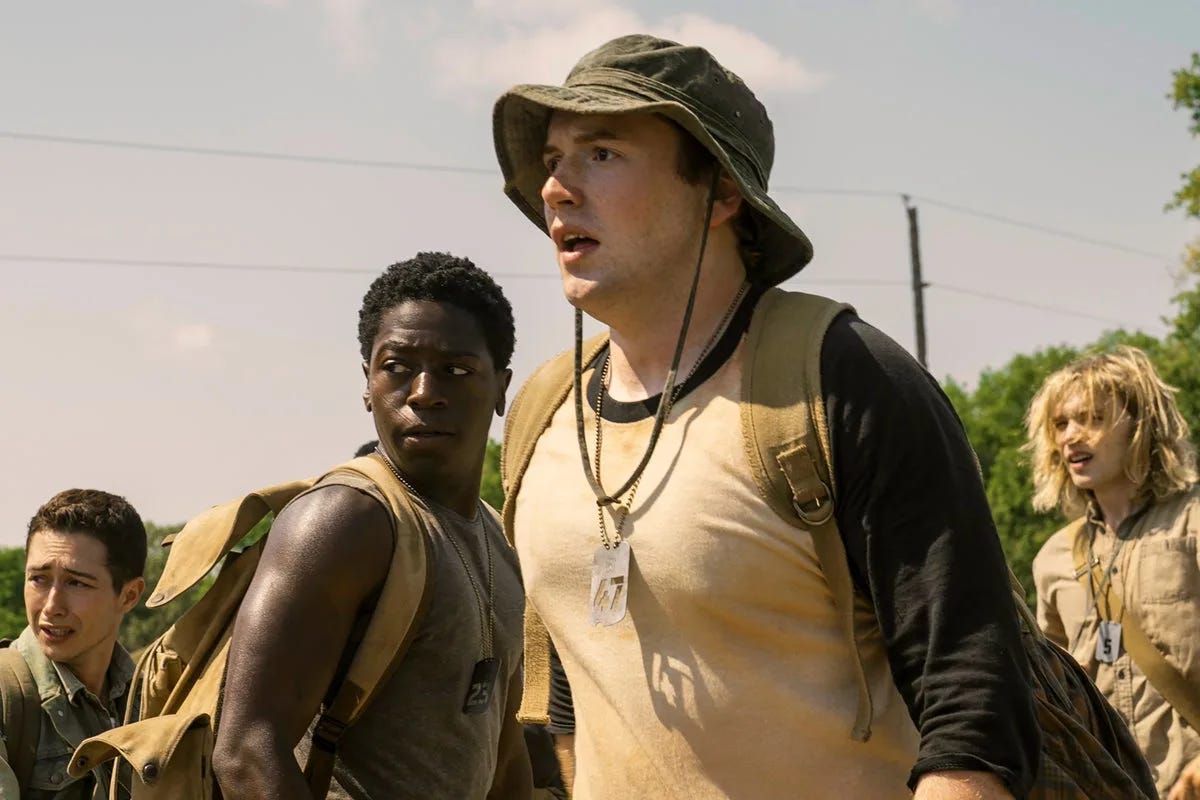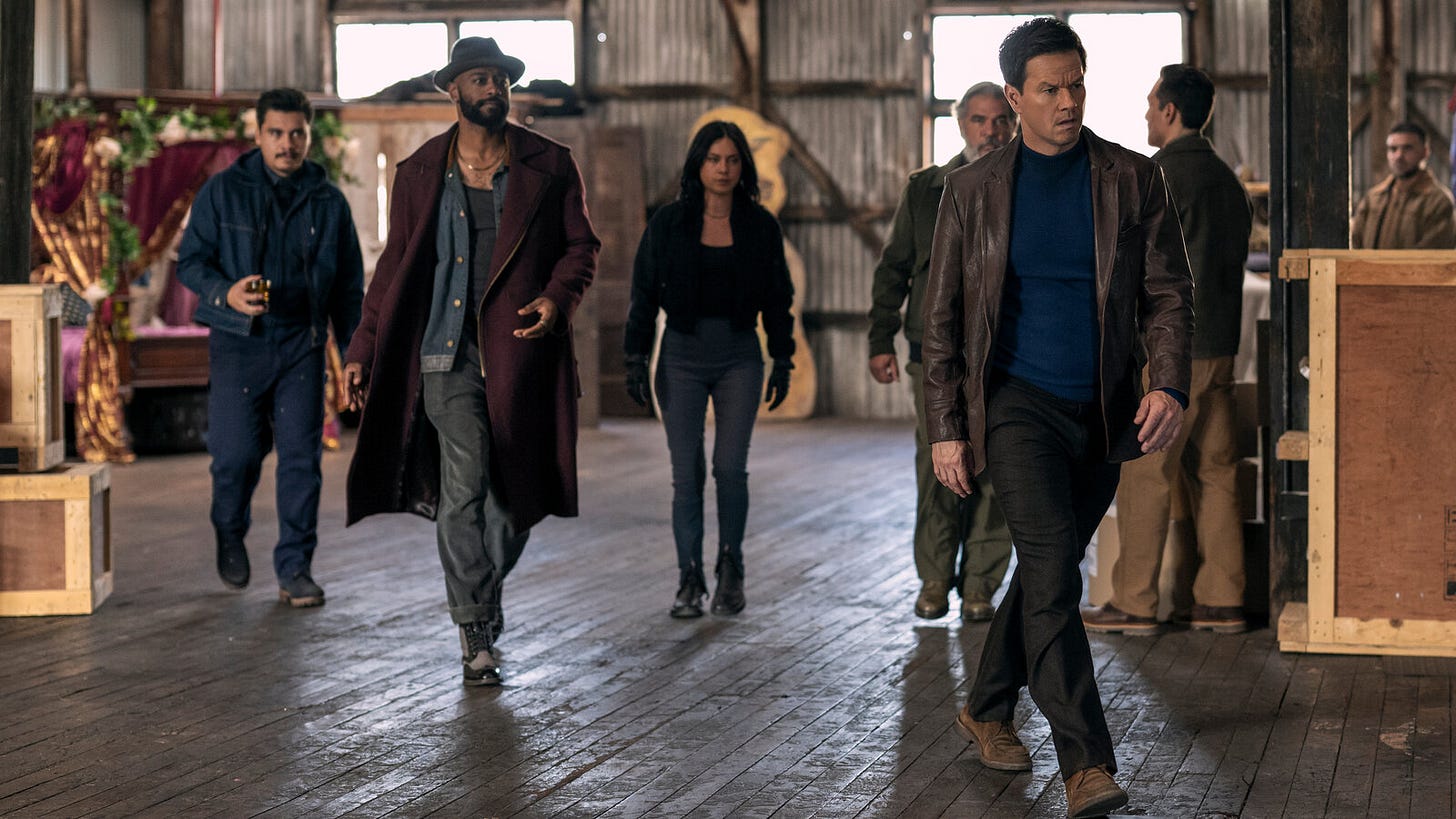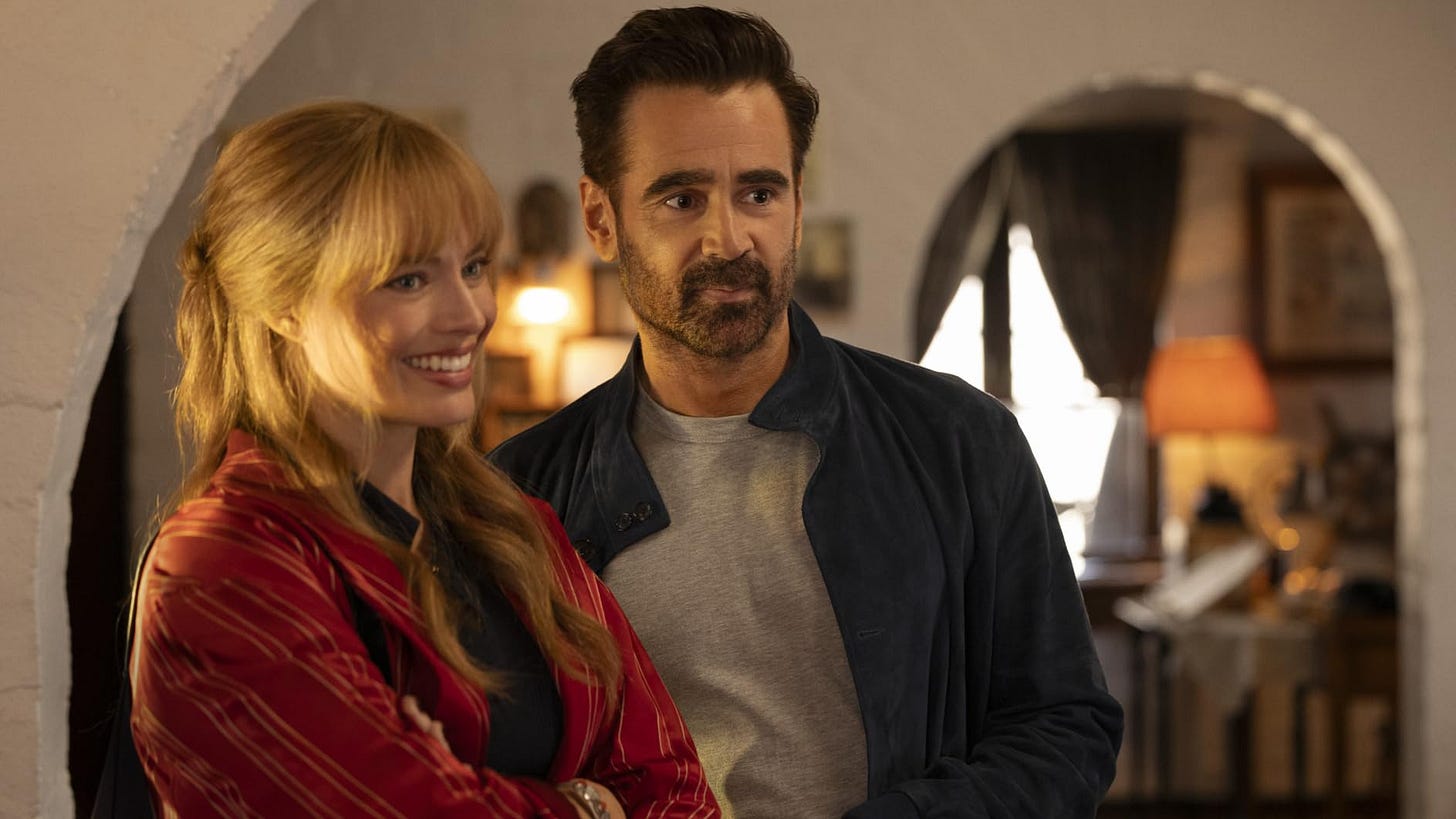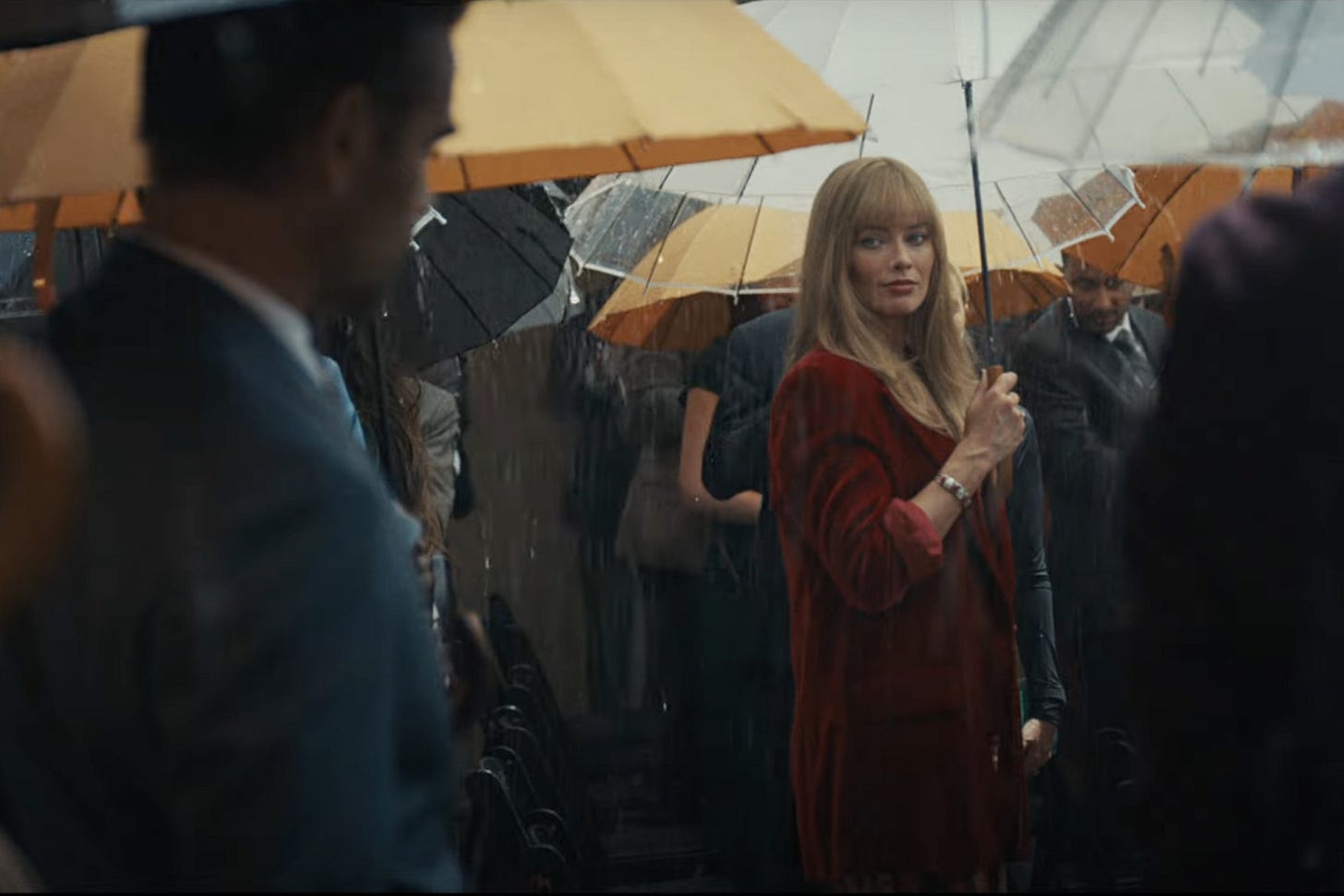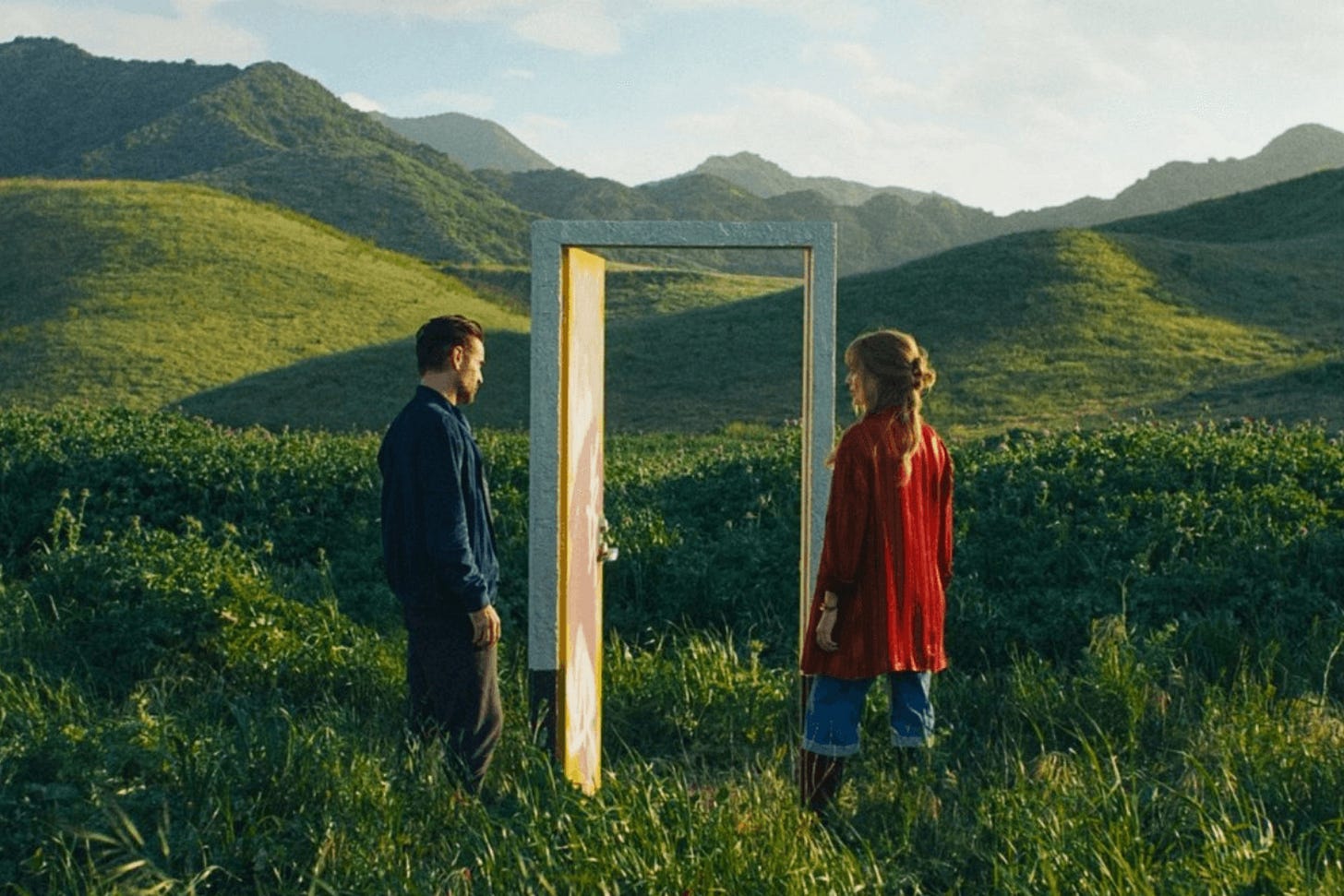WEEKEND SPECIAL: One Battle After Another, And Another, And Another, And Other Assorted Struggles
FilmStack Challenge #6
If you pinch a baby, it will cry as if it is the worst pain they have ever felt in their entire lives. Because it is.
It’s a difficult proposition to understand within the abstract, because the very notion involves validating the pain of others. Which is something we can do for some, but not for others. Empathy for the marginalized and endangered is a simple concept, one that could be prompted by the louder voices in our society if they decided to stop protecting the entitled from the worst pain they would ever feel in their lives. Protecting the entitled comes with perks, however; non-reciprocal empathy is uncommon in America today.
I return, frequently, to Spike Jonze’s “Where The Wild Things Are”, one of the handful of children's’ films in this century to have respect for its young audience. It’s an audacious film, one task with expanding a rather slim narrative into a feature-length experience. One way Jonze accomplishes this is by filling in the blanks of the home life of young Max, particularly in a brand new intro. At the start of the film, Max is meticulously building a snow castle, erecting bases, establishing height, digging tunnels. It’s an impressive display of children’s ingenuity. Not lost within Max’s accomplishment is a sense of pride that creeps across his face with each new innovation. The opening credits play over montage of Max’s architectural wonder.
And then Max sees his creation destroyed. As quickly as we saw it built, Max’s empire of Snow crumbles. It falls under the weight of the older kids, kaiju-sized to him, who begin crushing the creation, a casualty of their violence and roughhousing and comparative disinterest in “craft”. It is an abstract bullying, it is your hard work being dismantled, it is your existence demeaned, it is your skill, your one unique trait, being disregarded by the lords of the universe. Powerless against his bullies (who swoop in thoughtlessly as if a natural disaster, taking no ownership or glee in the severity of their actions), Max rages against the sky, rages against the world. And he comes home, and rages against his single mother. It is the worst pain Max has ever felt in his entire life.
Max is being raised by a single mother, in a relatively nice house, you can tell his is a lifestyle of love and warmth. But he is fractured, frustrated, and has never properly coped with the absence of his father. I watched “Where The Wild Things Are” as an adult in the theater, and with that distance of age, I could tell Max didn’t have it all that bad. But it was in that moment when I understood that certain pain is universal. It is not inconsistent to understand the weight of the world and to be crushed by Max’s own solitude.
Roger Ebert, God rest his soul, was the one credited with the notion that movies are “empathy machines”. As I got older, getting a chance to taste failure and loss, I lost touch with films where protagonists were meant to be troubled or endangered or facing a hostile world while they were often leading relatively pampered lives. I could appreciate this if it were against a larger, more interesting framework — I always found “Gossip Girl” to be a tragedy about the fall of an empire rather than the story of melodramatic teenagers, in a manner not dissimilar to the likes of “The Sopranos” and “Deadwood”. But if you sat me down in front of something like “Friends”, as a former New Yorker, I could only squirm in my seat towards these spoiled first world jerks.
I keep breaking new ground in identifying with characters in movies and television. “Where The Wild Things Are” showed me how we could tap into that pain that others felt on a spectrum beyond our own, we could cry for those who are not wounded as grievously as us, that everyone’s pain is valid. I truly do wish as if I could widen my scope once again, that I could open my eyes and see the world in the way it deserves to be seen. Unfortunately, contemporary film has kept me stuck in this ideological prism from which I cannot escape. It’s not as if ideology separates us as much as consistency, as much as integrity. I dislike looking down on others, which is why I question what kind of pain haunts the current spineless bullies of the world as they torment us.
There were a couple of viral stories from the last few weeks, stories designed to build off right wing outrage, unimportant narratives distracting us from the actual horrors in the world right now. They were guided by the endorsement of hateful right wing idolaters who have no real affiliation towards anyone but wealthy white men, none of this is new, endorsements piggybacking off the notion of what kind of country we should be, what kind of values we should endorse. What struck me was that these narratives emerged over the airwaves of The Benny Johnson Show.
I can understand having an outre political point of view, an unconventional manner of approaching issues and problems. But one cannot establish a narrative of America, one way or another, while sitting across from Benny Johnson. This man, a certifiable half-wit in any other scenario, was already proven to be a Russian asset, paid hundreds of thousands of dollars to spread Russian propaganda. As a political figure with sway, why are you even sitting in the same room as Mr. Johnson, who has proven to be unreliable and, quite possibly, an enemy of the state? Some have defended Johnson, noting that he was unaware he was being used as a puppet for the Russian government. No matter the context, if you are a responsible adult you have to understand that this makes the situation even worse. If you are on the show of a man who does not know he is pushing heavily-funded Russian propaganda, do you really have the standing to tell people what kind of America they should occupy? Since that Russian scandal, Johnson’s popularity and success among the right wing has only grown. I ask you, is this “political”? Or is that about understanding and condoning corruption, and integrity, in plain sight? Why would that be considered a political issue?
I thought of Johnson during “One Battle After Another”, a film I found frankly terrifying to ponder. Johnson would not be out of place in this film, which is political in a way which, if you were bothered by the lack of dimension afforded the antagonists, you would have to concede you may not be a positive contributor to society. Johnson is perhaps too comically risible for such a movie, and this is a film where Sean Penn’s growling Col. Lockjaw, straight out of an “Apocalypse Now”-inspired Saturday morning cartoon, does a cartoon walk all throughout in a quest to belong to a secret society of grandstanding racists who seem to sip wine all day from empty boardroom offices.
“One Battle After Another” is a knotty movie about cartoon scenarios that are also real world scenarios — it’s the rare film to cast a mirror out on us as a cruel tactic, reflecting just how lost we are, just how accepting we are that nihilism is the governing force of the universe, and idealism is literally underground. I was particularly troubled by the film’s fetishistic, vague way of treating it’s Black female characters — shortly after an election where a Black woman lost the Presidency because her detractors had free reign to imply or outright say literally anything they wished about her, truth be damned, it’s difficult to watch a film where screwed-up white men fight among each other in the shadow of a Black woman forced by white supremacy to compromise her morals. I would also like to know more about the battles being fought by Regina Hall’s Deandra and Benicio Del Toro’s Sensei Sergio off-screen. I suspect it’s one after another.
“One Battle After Another” is satire that covers the song of America 2025 and barely changes any of the lyrics. I am pissed off at the fact that characters like this, who free immigrants from (what is likely) illegal detention, can be considered squirrelly and untrustworthy simply because they are human in a world where law enforcement involves the quickest ways for those in power to put a knee to the neck of the vulnerable. I am pissed about a lot going on in this movie — I don’t go to movies looking for escapism, but this was the exact opposite of that concept anyway. I was troubled to be reminded of the world in which we live when a madman of the state is celebrated for leaving a trail of bodies simply because he wants to play in a treehouse with other white supremacist losers, forced to meet on the fringes of society within comfortable means. Penn’s Colonel Lockjaw operates on the basis that he cannot exist unless he’s forcing himself on the less-fortunate. The movie understands that this means he’ll also accept his “own kind” spitting on his face in return. Seeing him peacock in tight shirts and then, days later, watching Pete Hegseth drown in flop sweat as he gave a Bravado-And-Nothing-Else address to the armed forces felt like I had seen the film twice.
I was most bothered by Tim Smith, the attack dog of the Christmas Adventurers Club. With his close-cropped haircut, khaki pants and a Lacoste shirt fresh out of a suburban barbecue, Scott perfectly mirrored the domesticated portrait of fascism. The problem with people in modern society who disbelieve the obviously-encroaching totalitarianism in America is that they are trained to follow the symbols of the past, the overt menace of those who think they are of a master race. Oppressors understood this messaging as a buzzkill decades ago. Racism is no longer going to be wearing a hood on horseback, it’s going to be Tim Smith (played, expertly, by John Hoogenakker), refusing to say or do anything outwardly upsetting until he needs to fire a shotgun in your face. During one interrogation scene, seeing that intimidation wouldn’t work, he introduces the idea of torture, with the ease and practicality of someone’s father debating which grill to purchase. Evil is not threatening when it yells and breaks things and fires guns. Evil is threatening when it is comfortable, and no one in this movie is as comfortable as Tim Smith.
Politics cannot help but be the construct that affects movies that seem as if they should operate on their own terms. “After The Hunt” is, basically, a story that has been told since the beginning of time, the aftereffects and consequences when someone with less power accuses a superior of assault. In this case, it’s an overmatched Ayo Edibiri as Maggie, a promising PhD student at Yale who claims assault at the hands of Andrew Garfield’s Hank, a sexually-forward professor who respects the boundaries set by institutions, but not the interpersonal ones that cause the most trouble.
Complicating matters is that Maggie seeks out Alma, an older and seemingly well-put-together professor played by Julia Roberts. Maggie, naturally, confuses empathy for allyship, and when she realizes the boundaries Alma has set, she chooses to take aim at Ally for her own ideological inconsistency. The movie entirely pivots off the idea that Alma, as the experienced older woman in power, is far from reliable, miles from likable, and someone who has violated boundaries all her own for years. A standout in the ensemble (and, tellingly, the character with the least dramatic responsibilities) is Michael Stuhlbarg’s Frederik, Alma’s annoyed and unenthused husband. He exists only to puncture everyone’s bubble of self-importance. I’m hoping for a trilogy spinoff for him.
“After The Hunt” is a movie poisoned by our current discourse, not content with placing ordinary characters in a moral conundrum. Tellingly, the opening credits are in the Woody Allen font, though the movie doesn’t reflect his best works, but his worst, where characters represented ideas and archetypes for Allen’s own rhetorical exercises in morality. The movie is basically the conversation the left has had for years online, that being that #MeToo was necessary to hold men accountable, but perhaps it had gone too far and had become another form of book burning and censorship, and oh, that aforementioned backlash has now led to predators retaining or re-obtaining power.
It’s airless, and director Luca Guadagnino seems to know this. He shoots dialogue scenes with leisurely two-shots, but artificially intensifies certain moments by allowing actors what appears to be direct-address to the camera. It’s another issue movie being told through italics. Much of the fatty runtime (notably not a Woody Allen trait, to his credit) is devoted to academic metaphorical conversations that tiptoe around the animosity Maggie (who, as a Black woman, tellingly takes a backseat as the moral questions of the premise intensify) feels towards Alma. “After The Hunt”, in ways both literal and metaphorical, never feels like it leaves the campus.
I was somewhat tickled by the presence of politics during the paper-thin “Honey, Don’t”, a spiritual follow-up to the wacky road movie “Drive Away Dolls”. This is more of a traditional murder mystery, albeit one that could barely hold up a half-hour streaming show. The spaces in between are filled with funny, naturalistic performances from Margaret Qualley and Charlie Day, a dramatically-unearned schizophrenic turn from Aubrey Plaza, and a truly flavorless walk-on for Chris Evans. But, again, there is a moment where Qualley’s lesbian private eye Honey O’Donahue disassembles a henchman’s gun, bashes it against a trailer, and then slaps a feminist sticker on his bumper. You can’t pay enough money to see such a thing in 2025 America.
The upsetting, slippery “Predators” is a rather uncommon documentary, given how it’s not addressing the rape culture that puts predators in power but the one that thoughtlessly demeans and degrades participators in said culture, an approach that does not yield simple answers. Which is a superficial contrast to Chris Hansen’s “Help me understand” — a philosophical question without an answer that would entertain prime time audiences when “Dateline: To Catch A Predator” was regular broadcast television viewing.
“Predators” asks why we, as a society, accepted this as “normal”, the idea of broadcasting the degradation and arrests of mentally-unwell sexual predators pulled into sting operations where the cameras, and eventually the cops, would be waiting. Each show found an online predator lured into a meetup by undercover agents, left holding flowers and condoms as Hansen walked in, imperious and mock-profound, vivisecting a desperate pedophile’s lies before he was WWE-tackled into the shrubbery. Such Roman colosseum antics were catnip to the viewing audience who reveled in predators as public offerings to the gods of reality television.
“Predators” is an auto-critical documentary that asks us why we enjoyed such theatrics, while openly wondering if the dehumanizing aspect was canceled out by the notion of keeping the public safe from those that exploit children. There is no rooting interest, as the documentary concedes that the show quieted the fears of advocates against child abuse. On the other hand, Chris Hansen appears for a late interview, and misinterprets this as yet another victory lap. As a talking head in this film says, punishment for the crime is far more important than any sort of rehabilitation, which is a canny way of eschewing all moral responsibility for the well-being of others. No need to heal the sick, there’s a podcast to record.
In 2025, it is now certain that movies that “speak to the moment” are rife with a crushing inevitability. It has been such a vicious couple of weeks. An idiot white supremacist demagogue was murdered, and his colleagues and followers have taken the opportunity to disingenuously battle with an entire class of people that refuses to lick boots. All the while late night comedians are offered up as bait for massive corporations to beef up their profits and cable news simpletons celebrate the murder of the homeless.
There is a flashback in “The Long Walk” where a man, standing in front of his family, is chastised by a gutless reality TV strongman to submit. He refuses and is shot in the head. It is implied this happens all over America, and over the corpses of the unwilling, there has been built a capitalist culture of gratefulness, the haves lording survival over the have-nots, in a gaudy spectacle that celebrates children getting shot point-blank in the face -- not terribly different from every day life in a country that is quickly bleeding out from reckless consumption.
“The Long Walk” is grim. It reminded me of the helplessness of Michael Haneke’s “Time Of The Wolf”, a movie about a struggling family at the edge of civilization that is in fact merely in between apocalypses. That is also this movie in a nutshell, which concludes with a revolutionary act that is likely blunted by a cruel and stupid government that, nonetheless, knows how to snuff out revolution via muscle memory. “Time Of The Wolf” is titled presumptively -- the notion is that a wolf will soon be replaced by something worse. “The Long Walk” suggests, similarly, that it will not be easier for future generations, and it’s bad enough that kids are walking on grotesquely-broken ankles for a viewing audience just to avoid death.
The premise -- essentially walk or die, with game show trappings -- is basic enough that you’d think it would fall into the type of mundane formula that has burdened several films from this director, Francis Lawrence, particularly his sentimental, illiterate take on “I Am Legend”. In fact, Lawrence, who has grown fat off the “Hunger Games” movies, seems to tackle this picture like a stripped-down indie feature. Fifty kids, backpacks ready, quipping and joking their way towards a guaranteed death for forty-nine of them. All the while guns are pointed at them, warnings are screamed, and there is no break from the unending pace.
It is the actors and characters who shine, a bright cast who seem natural when not forced to rattle off some of the dated dialogue probably preserved from the source material (children in the future know “Candid Camera”?). Some of them rattle the others, a few are reckless, and yet they all march side-by-side for an uncaring, unseen government that wants them all to be thankful for an opportunity at a death lottery. The cash prize entices many, but there is also the patronizing promise of a “wish”, albeit one that explicitly does not deter from the process of The Long Walk (and implicitly, does not interfere with the natural order of society). “The Long Walk” comes shortly after a Netflix-assisted expose regarding abusive behavior on the set of weight-loss show “The Biggest Loser”. Knowing that the novel of “The Long Walk” is from several decades earlier should tell you something about “The Biggest Loser”, as well as where America has been headed for a very long time.
“The Long Walk” begins in the dystopian flavor of several bleak YA adaptations where young characters face an uncertain future due to the selfish machinations of previous generations. It withholds the title, and plays to your expectations, until twenty minutes in, when a child is shot in the head. He is shot from behind, and as he faces the camera, a chunk of his face comes off, flapping into the air like it used to mean something. Instantly, I thought of the comfort and disinterest the country feels in dead children, once a taboo but now an accepted way of life. A child’s face getting blown off happened last week, in a school, but the media preferred discussing the white supremacist that met the same fate. We ignore the carnage today. In “The Long Walk”, it seems obvious that we’re just that much closer to celebrating it.
There’s a bit half-way through “Play Dirty” where the characters, in a speeding car, participate in a Roland Emmerich-style chase against the backdrop of approaching apocalyptic carnage. It’s laughably out-of-place in what is otherwise a grimy (but too well-lit) modern noir guided by double-crosses and corrupt money men. But that’s mostly because the effects simply are not there -- most of the FX work in this movie, particularly green screen stuff, is 1993-level (”1993 Level” covers most of the movie). It’s ironic that this is the sequence that maybe doomed the film to streaming instead of theaters -- writing it in the script was probably what got Shane Black the budget and the green light in the first place.
This is Shane Black territory -- it’s Christmas, everyone’s a misogynist, even the background extras have quips, and everyone has a trigger finger. There are a few fun reversals, some goofy torture sequences, and a few amusing moments of shady criminal interplay. But the cast is entirely mismatched, all of them giving performances in different movies. Marky Mark, sadly, seems the most checked-out, reading his lines all in the same repeated intonation, the one that made crap like “Max Payne” such a tough sit a generation ago. Keegan Michael-Key and Nicole da SIlva, as part of the Parker gang (this is barely a Parker adaptation -- they keep trying), are both playing their material like a sketch comedy show. Tony Shalhoub as a big bad can’t fill those shoes convincingly. Rosa Salazar is a fun femme fatale. Lakeith Stansfield is comic relief in a deeply unserious movie -- would love to see the “Atlanta” vet in the lead of a movie like this, play off his natural cynicism, charm and mischief.
There are pleasures. The script is sharp, and deserves a punchier direction than Black can give it. Alan Silvestri delivers a lush throwback score, aural moody shadows and doomed romanticism. The movie never stops introducing colorful side characters, if only to shoot them in the face. You wonder if this shares a universe with Jason Statham’s “A Working Man”, a similarly inefficient movie that nonetheless found space for various colorful side characters. If your expectations are low, this will work for you.
One odd bit -- a truly bizarre Mark Cuban cameo that brings up an unsettling and under-thought association with Luigi Mangione, of all people. Probably more of a bizarre coincidence, but generally a bewildering plot hole of a development that, in a few ways, seems to break the universe of the movie. Can you make a movie where someone murders a billionaire and just walks off?
Of course, in this age of Hollywood’s crippling fear of intimacy (physical, emotional, what have you), a movie exists where two of the best looking people in the world keep resisting each other for no godly reason, even though a pernicious a.i. insists on it. This is “A Big Bold Beautiful Journey”, a movie completely alien to just about any human sensibilities.
These two meet at a wedding, hit it off, and both notice they’re alone and have no real plans (... for the rest of their lives?). And then they... do nothing about it. What? Look. I am halfway in between the ages of these two (and it’s a gap!), and I have to say -- my apologies to Margot Robbie, but neither sh nor Colin Farrell are young! In many societies around the world, there would be constant pressure to get together and mate! I guess, in this movie, it’s not being done in America because... free will and freedom? Yay? Just say you’re serial monogamists and be done with it, none of this, “I can’t be with someone because I’m too brittle, or I cut the toast like this, or I like Atari and everyone is a Sega person.” What is this nonsense?
I feared movies like this when I was in prison. I worried I would come out and watch a movie like this and be completely annoyed by the first-world obnoxiousness of how precious life is. Farrell’s character had to handle the struggles of being called “great” too often by his father. Yeah, I will never relate to this. Robbie, similarly, seems to come from a middle class suburban American lifestyle with a Cool Mom. Do any of you have real problems? Other than being gorgeous Hollywood stars who, in TWO SEPARATE OCCASIONS in this movie, have to unconvincingly pretend to be people who eat fast food?
So these two people refuse the a.i.’s protestations to mate (the implications of which are never addressed -- why does an algorithm want to propagate the species?) by basically accepting the program’s demand to go to therapy. And then they walk and walk and walk through their own neuroses and never once address each other, only their own problems. Because this is a romantic movie about getting in touch with ME. Love for the narcissists who talk to nobody but keep re-formatting the border on their Instagram page. This is weapons-grade White People Junk.
And the cursing! Look, I love a well-placed “f—k” as much as the next guy. I love to f—king rip s—t up, motherf—ker. But not everyone curses, and regular people like myself can go a whole day without cursing. If you curse, it’s either from intense emotion, or because your vocabulary is terrible. It makes sense during the move’s tense moments. But everything else is just a casual non-sequitur. Movie stars are supposed to be better than us, they should have different ways of saying things. If you’re in a Tarantino movie, you should expect a lot of foul language, but in any scenario, hearing a bunch of curses in a row is hard on the ears. This is one of the reasons you don’t see a lot of people going to the movies that much anymore -- they generally don’t want to be bombarded by a bunch of “f—k”s unless it actually matters, and they definitely don’t want to hear it if people are trying to fall in love.


